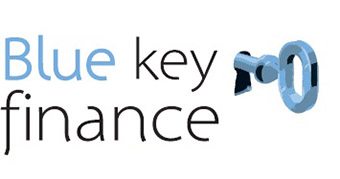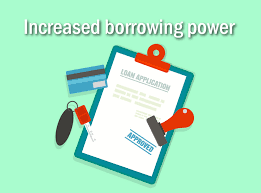Many ways to increase your borrowing power for a home purchase
With property prices soaring, knowing how to improve your home loan serviceability can be the difference between getting the keys or being shown the door.
What is home loan serviceability?
Lenders essentially make a business investment every time they loan money to home buyers. As such, they need to work out whether you’re a safe bet, and they do this by assessing your home loan serviceability.
It’s not just for the bank’s sake, either. If you get a loan and can’t pay it back on time, your capacity to get other loans down the track will be harmed due to chequered credit history.
How it is calculated
The serviceability is calculated by combining all of your income such as your salary, rental income and interest from investments, and then taking away your expenses and other debt repayments you have, including your mortgage repayments, and factoring in the make-up of your household.
However, it is not always straightforward, especially when you take into account things like your employment status (i.e., a contractor vs. being full-time) and how many dependents you have.
As part of the process of determining your serviceability, lenders will usually calculate your mortgage at 2.5% higher than the market rate to ensure that if there is an increase in interest rates that you will still be able to comfortably pay back your repayment.
This is a safety net that they build into the calculations to protect themselves, but it is also to assist you to ensure that you are not in a position where you will be unable to make your repayments if there is a shift in interest rates throughout the life of your loan.
How income is assessed
Not all rental income is treated equally. Whereas 100% of your salary will go into the calculation, typically only 60-80% of rental income will be calculated.
The reason for this is that they need to consider that the property won’t always be tenanted, so the borrower won’t be able to depend on the full rental return to cover their mortgage repayments.
The same goes for income from shares due to the fluctuations in the market and the risk that shares could also depreciate in value.
This means that lenders cannot accept 100% of investment income and will generally consider 80%, this varies between different institutions.
The benefits of increasing your home loan serviceability
The good news is that home loan serviceability isn’t a static condition you’re lumped with – there are ways you can improve it and thereby improve your chance at securing a loan at a good interest rate from a wide amount of home loan products.
Another benefit of increased serviceability is having a greater buffer or higher disposable income, so as minimise risk if interest rates move.
This will take a considerable amount of pressure off, and give you a safety net to fall back on if there is an unexpected change.
Here are some ways we recommend you do to improve your home loan serviceability.
Reduce credit limits
Even if you don’t owe anything on your credit card your limit will still be considered as potential debt when lenders are assessing your position. As a borrower, this will make you much more attractive to the lender due to having fewer lines of credit and removing that potential risk.
Aim for stable employment
Being self-employed or a contractor can be viewed as a risk by some institutions. If you are in a new job and still under your probation period, this can also affect your serviceability, which is why it’s best to start applying for the loan when you have passed probation as it allows you to demonstrate a constant and stable income stream.
Pay off and cancel “Buy now pay later” loans
Buy Now Pay Later (BNPL) products are readily available in most stores now, they are easy to use and can be seen as a great way to manage cash flow, however, what many people don’t understand is the effect that they have when applying for a home loan.
BNPL transactions often show up on a credit check, and generally, this will have a similar effect to credit cards that demonstrate when you are overextending yourself through these companies. To increase your serviceability, make sure you pay all of these debts off before applying for a loan.
Rein in spending
Before buying a home, it is important to budget and save money, not only for your deposit but to also demonstrate your spending habits to the lender. When you start thinking about getting a home loan it is important to cut back on your spending habits.
To borrow money, the lender will need to see your last 3 months of savings bank statements, and if there is a considerable amount of spending on takeaway and entertainment costs, this will affect your serviceability. Institutions want to see that you’re demonstrating responsible spending habits, ensuring that they will trust you to make your repayments.
Ask for a pay rise
By increasing your salary by as little as $5,000 p.a. can increase your potential maximum borrowing amount by about $50,000.
So, there is no harm in asking your boss for a pay rise.
Borrow with another person
If you are frustrated in how low your borrowing power is, you could always think about borrowing with your partner, or sibling, or even a good friend. Doing this, the Banks can use two sources of income when calculating your joint borrowing power.
Pay out your high repayment debts
If you have the ability to payout a ‘high repayment’ debt with your large savings, then do so. Ensure you have enough deposit to enter the property market because most lenders will only lend up to 95% of the property’s value.
Also, look at the difference in what the one-off cost called ‘lenders mortgage insurance’ (LMI) will be with different deposit amounts, as you may be surprised this difference could be in the thousands.
Check your credit report
It is even more important today to check your credit report as Bank’s can charge higher interest rates to those with a low credit score. In addition, they banks could also ask you to put up a larger deposit because of a low credit score so as to minimise their own risk.
You’re allowed to obtain your own credit report for FREE at least once per year from each of the few credit reporting agencies in Australia.
Pick the right lender
Know what you want and always shop around. Currently, in Australia, there is so much competition and with rates the lowest they’ve been for decades, there is no better time to find the best products in the market.
Utilising our service will definitely put you on the right path with lender and product and keeping your proposed loan repayments affordable now and into the future.




Leave a Reply
Want to join the discussion?Feel free to contribute!